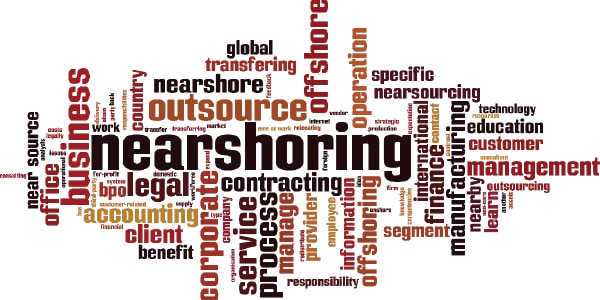With a Little Help From My Friendshoring

For more than 40 years, economic policies encouraged companies in the developed world to move production offshore to reap the benefits of cheap labor and raw materials. But times are changing.
Over-reliance on foreign supply chains and geopolitical events have led many companies to explore nearshoring and friendshoring opportunities to help prevent logistics hiccups.
Some companies are rethinking their supply chain plans to include closer and friendlier partners, finds a recent Coupa survey. For example, the data shows that in the next six months to one year:
- 28% of respondent companies will reduce dependency on suppliers from any one region.
- 28% say they rely on suppliers that are geographically closer to production and distribution facilities.
- 31% plan to strengthen relationships with their current suppliers and/or buyers.
“When supply gets constrained and capacities and materials go on allocation, suppliers tend to prioritize their preferred customers,” says Dr. Madhav Durbha, vice president of supply chain innovation, Coupa Software. “Organizations are gaining this status as ‘preferred customers’ through collaborating with suppliers by providing visibility into their anticipated demand and ensuring payments happen on time.”
As companies diversify operations, many see the benefits of closer economic relationships with businesses in countries that closely align politically. For example, the United States and India hosted a summit in January 2023 to explore efforts to enhance the resiliency and sustainability of trade between the two allies so both are “better able to withstand current and future global challenges,” according to U.S. Treasury Secretary Janet Yellen.
The close relationship between the countries may culminate in companies moving operations out of countries less friendly with the United States and into the Southeast Asian nation. Case in point: Container xChange published survey results that show 67% of respondents consider India and Vietnam as attractive alternatives for a China-plus-one strategy.
Mexico is another U.S. trade partner benefiting from both nearshoring and friendshoring. In 2022, Mexican imports to the United States rose 19.5% year-over-year to reach $479.6 billion according to Mexico’s National Institute of Statistics, Geography and Informatics. Mexico houses assembly plants for GM, Toyota, BMW, Honda, Volkswagen, Mazda and others, and is the top importer of motor vehicle parts made in the United States.
